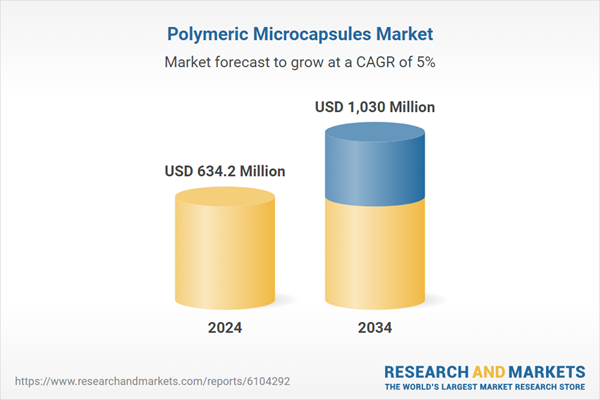For instance, encapsulation is increasingly used in beauty products and self-care items, protecting sensitive ingredients and enhancing product performance. In the food industry, these microcapsules help improve shelf life by protecting probiotics in products like fermented beverages. The growing adoption of microencapsulation in functional foods and health supplements is further boosting market growth. As consumers demand longer-lasting, safer, and more effective products, polymeric microcapsules are becoming essential in a wide range of applications, fueling innovation across the market.
The synthetic polymers segment held a 35% share in 2024, primarily due to their cost-effectiveness, versatility, and compatibility with various active ingredients. These polymers enable the controlled release of substances and are widely used in pharmaceutical and agrochemical products. Additionally, they are gaining traction in the food and cosmetics sectors, owing to their superior barrier properties, tunable degradation rates, and high stability. The scalability of synthetic polymers, coupled with the ease of their production, makes them more favorable than natural or hybrid alternatives, which are less suitable for mass production.
Medium-walled microcapsules segment, which measure between 5 and 20 micrometers, accounted for 45.8% share in 2024. These microcapsules are favored for their structural integrity and ability to release active ingredients efficiently over time, making them ideal for use in drug delivery systems, agriculture, and food products. Their size offers the necessary control over the release rate, which is essential in applications where precise timing and dosage are critical. The
U.S. Polymeric Microcapsules Market was valued at USD 162.3 million in 2024, reflecting the country's leading role in driving innovation in microencapsulation technologies. The well-established healthcare system and regulatory environment in the U.S. provide a stable foundation for the growth of controlled-release technologies. U.S. consumers are increasingly demanding products that offer enhanced performance, safety, and user-friendly features, which polymeric microcapsules help deliver by improving shelf life, flavor masking, and controlled ingredient delivery.
Key players in the Global Polymeric Microcapsules Market, such as BASF, Evonik, Givaudan, IFF, and Lonza, continue to focus on expanding their market presence through innovations and product development. These companies adopt strategies that include investing in R&D to advance microencapsulation technologies, forming strategic partnerships to improve market penetration, and expanding their portfolios to meet the growing demand from industries like food, healthcare, and cosmetics. By offering customizable solutions, enhancing product performance, and ensuring regulatory compliance, these companies strengthen their foothold in the market. Additionally, they are increasingly focusing on offering solutions that improve sustainability and address consumer demands for cleaner, safer products.
Comprehensive Market Analysis and Forecast
- Industry trends, key growth drivers, challenges, future opportunities, and regulatory landscape
- Competitive landscape with Porter’s Five Forces and PESTEL analysis
- Market size, segmentation, and regional forecasts
- In-depth company profiles, business strategies, financial insights, and SWOT analysis
This product will be delivered within 2-4 business days.
Table of Contents
COMPANIES MENTIONED
The companies featured in this polymeric microcapsules market report include:- Balchem Corporation
- BASF SE
- Calyxia
- Evonik Industries AG
- Givaudan SA
- IFF
- Lonza Group
- Microtek Laboratories
- Mikrocaps
- Milliken
- Tagra Biotechnologies
Table Information
| Report Attribute | Details |
|---|---|
| No. of Pages | 220 |
| Published | June 2025 |
| Forecast Period | 2024 - 2034 |
| Estimated Market Value ( USD | $ 634.2 Million |
| Forecasted Market Value ( USD | $ 1030 Million |
| Compound Annual Growth Rate | 5.0% |
| Regions Covered | Global |
| No. of Companies Mentioned | 12 |









